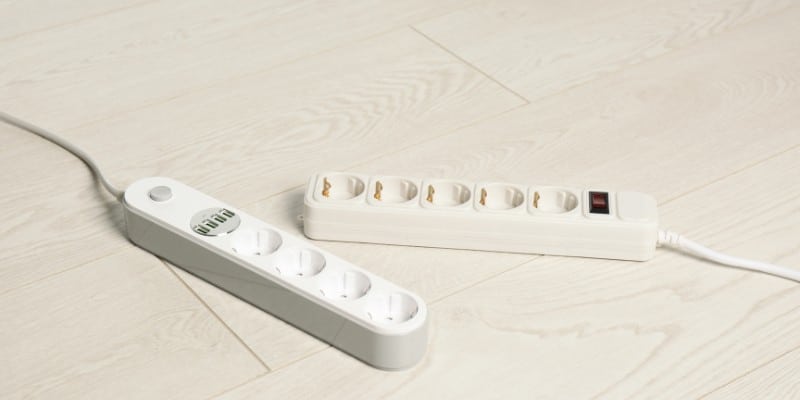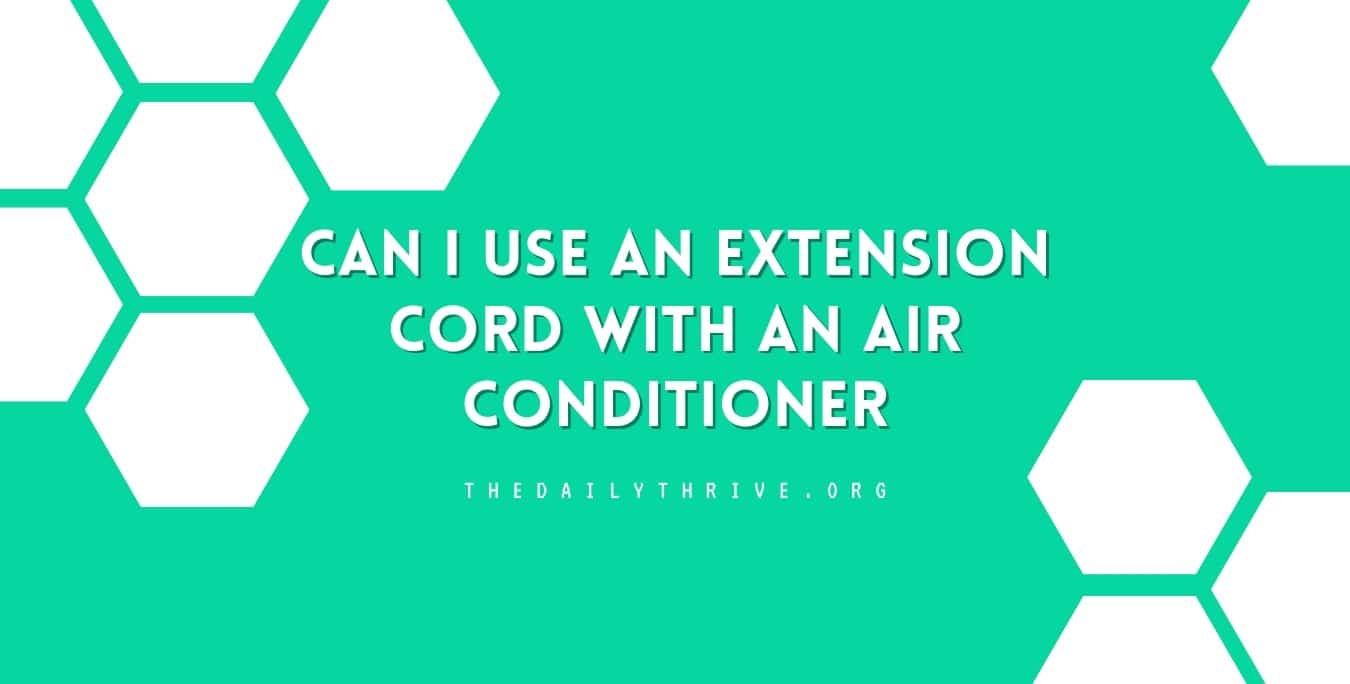With the summer heat rising, many homeowners find solace in the cooling embrace of an air conditioner. But what if your AC’s cord can’t quite reach the outlet? The temptation to use an extension cord can be strong. But is it a good idea to use an extension cord with an Air Conditioner?
Let’s dive deep into this topic and understand the dynamics.
Air Conditioner Power Needs
An air conditioner is a machine that extracts heat from your room and transfers it outside, providing a cool and comfortable atmosphere. To achieve this, it requires a substantial amount of power.
The power needs of an air conditioner are usually higher than many other household appliances. The unit’s wattage and amperage ratings often reflect this power requirement. For instance, a typical window air conditioner might use between 500 and 1,500 watts. In contrast, a central air conditioning unit could demand up to 5,000 watts when running.
The amperage, or the measure of the flow of electricity, is another crucial factor. A common household AC unit often requires a current between 5 to 15 amps. These numbers are not just technical jargon; they lay the foundation for our upcoming discussion on extension cords.
Using an Extension Cord for Air Conditioner
Air conditioners are designed to consume a significant amount of power. As such, the power delivery method – in this case, the cord – must be carefully considered to ensure optimal performance and safety.

Imagine plugging your powerful air conditioner into a flimsy, weak extension cord. The potential outcomes could be brighter.
The risks of using an extension cord for air conditioners:
- Electrical Overload: An extension cord not equipped to handle the power requirements of an AC might overheat. In extreme cases, this can lead to fires. In the US alone, over 3,000 fires are caused annually due to extension cords, leading to approximately 50 deaths and over 250 injuries.
- Reduced Efficiency: An inappropriate extension cord can lead to voltage drops. Your air conditioner may not operate at peak efficiency, leading to inadequate cooling and increased energy consumption.
- Potential Damage: Continuous use of improper extension cords can lead to wear and tear, not just on the cord but also on your precious air conditioner.
Always ensure the extension cord can handle your air conditioner's wattage and amperage demands. Be wary of the cord's length. A longer cord can lead to significant voltage drops.
When to Use an Extension Cord
We’re not completely ruling out using extension cords with air conditioners. However, it’s crucial to be informed and cautious.
There might be rare situations where using an extension cord is unavoidable. You may be in a temporary living situation or waiting for an electrician’s appointment.
If you must use an extension cord, it’s essential to prioritize safety. Here’s a crucial tip:
Ensure the cord is high quality, and always check for any signs of overheating.
If you consistently reach for an extension cord, it’s a clear sign that you should consider a more permanent solution. Hiring an electrician to install an outlet closer to the AC unit would be a wise investment in the long run.
Selecting the Right Extension Cord for Air Conditioner
Picking any extension cord off the shelf won’t cut it. Here’s what you need to keep in mind when using extension cord for an Air Conditioner:
Gauge & Length
The gauge refers to the thickness of the wires inside the extension cord. A lower gauge number indicates a thicker wire suitable for high-powered devices like air conditioners.
For example, a 14-gauge wire might be appropriate for smaller window units. A 12-gauge or even 10-gauge might be needed for larger units.
Use short extension cords. As we’ve established, shorter is better when it comes to cords and AC units. If you must use an extension cord, ensure it’s as short as possible to meet your needs. A short extension cord will be less likely to lead to the hazards associated with longer cords, like tangling or tripping.
Remember, the longer the cord, the higher the chances of voltage drop. Ideally, choose the shortest length that meets your needs.
Certifications and Safety Standards
Ensure the extension cord you choose is certified by recognized safety institutions. Look for certifications from organizations like the Underwriters Laboratories (UL).
Every aspect of your air conditioner, down to the length of its cord, is designed with your best interests in mind. As homeowners, we must understand and respect these design choices for our comfort and, more importantly, our safety. Always prioritize safety, especially with high-power appliances like air conditioners.
Using an Air Conditioner with inappropriate extension cords can be a risky affair. With this article’s knowledge, homeowners can make safe and informed decisions. Understanding your AC’s power needs, recognizing the risks associated with using the wrong cords, or investing in a permanent solution, every step matters in ensuring safety and efficiency.






